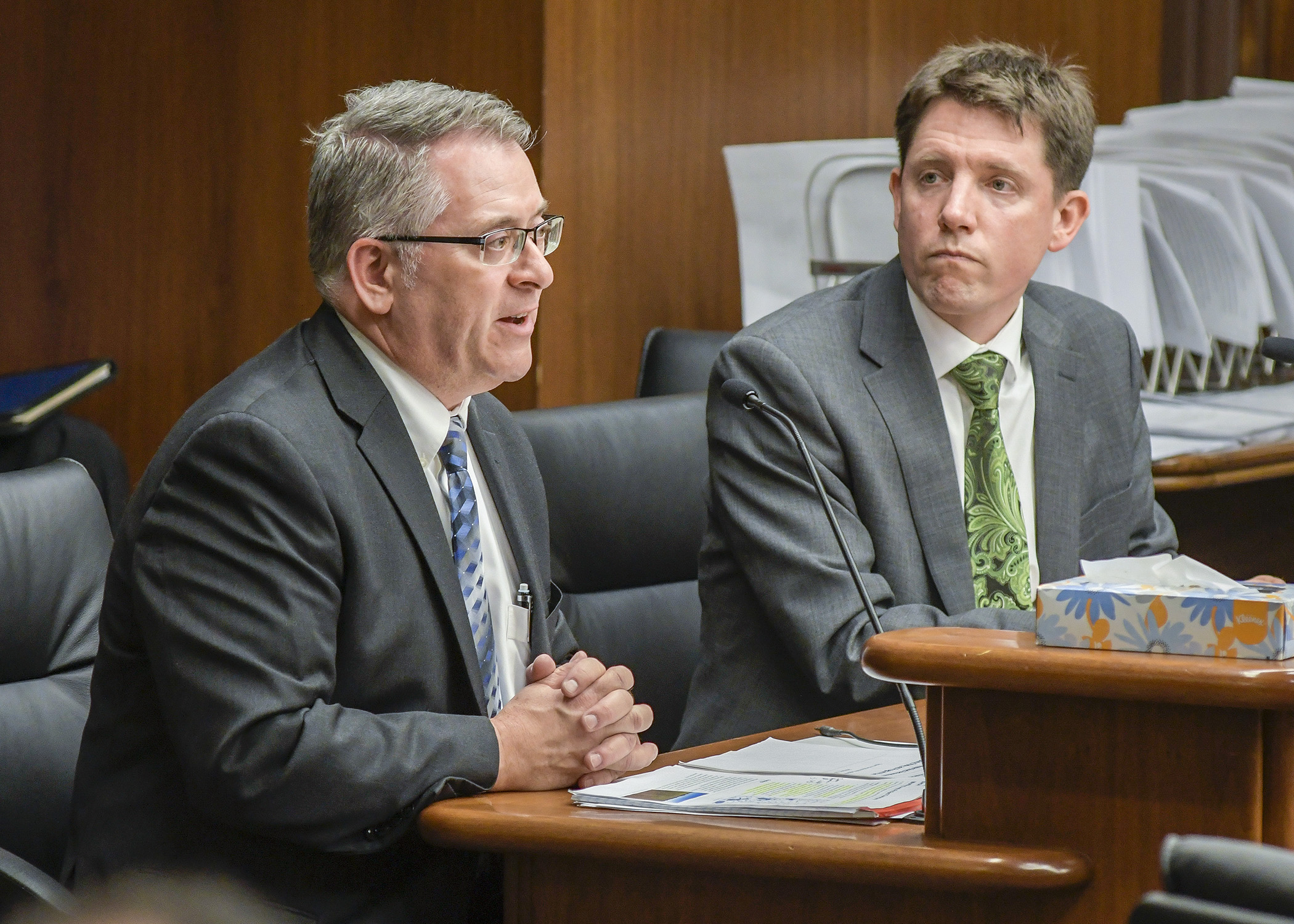Effort to bolster perennial crops, improve water quality advances

Rep. Todd Lippert (DFL-Northfield) would like to improve the state’s drinking water by encouraging more widespread use of perennial and cover crops.
His bill, HF1569, would require the Board of Water and Soil Resources to establish a pilot program aimed at achieving that goal.
Approved by the House Environment and Natural Resources Policy Committee Wednesday and sent to the House Ways and Means Committee, the bill would appropriate $8.5 million from the General Fund to the board in Fiscal Year 2020.
It would also direct the agency to create a program to increase the number of projects protecting water and soil through the use of perennial and cover crops, which help retain topsoil and curb runoff of pollutants.
The board would have to prioritize areas of program focus, seeking to foster projects providing multiple environmental benefits.
Recognizing that changes need to be incentivized to encourage farmers to try alternative crops, the agency would subsidize efforts to establish self-sustaining conservation crops such as kernza, alfalfa, and winter kamut wheat.
“This market-based approach is a proven way to try to achieve our water quality benefits,” explained David Weirens, the board’s assistant director for programs and policy. “To work with producers to grow crops that have more cover on the land for a longer period of time during the course of a year, so that runoff, as well as the water that seeps into our groundwater, has a chance to get filtered by the vegetation before it gets to another body of water.”
The bill is the result of working with a broad group of stakeholders, according to Lippert. That includes farmers and landowners, local governments, state agencies, and the University of Minnesota researchers.
The companion, SF1637, is sponsored by Sen. Carrie Ruud (R-Breezy Point) and awaits action by the Senate Environment and Natural Resources Policy and Legacy Finance Committee.
Related Articles
Search Session Daily
Advanced Search OptionsPriority Dailies
Legislative leaders set 2026 committee deadlines
By Lisa Kaczke Legislative leaders on Tuesday officially set the timeline for getting bills through the committee process during the upcoming 2026 session.
Here are the three deadlines for...
Legislative leaders on Tuesday officially set the timeline for getting bills through the committee process during the upcoming 2026 session.
Here are the three deadlines for...
Latest budget forecast projects nearly $2.5 billion surplus, but red ink down the road
By Mike Cook Three weeks before Christmas, state budget officials provided some merriment to Minnesotans. However, Grinch-like transformations lurk.
Released Thursday, the November ...
Three weeks before Christmas, state budget officials provided some merriment to Minnesotans. However, Grinch-like transformations lurk.
Released Thursday, the November ...